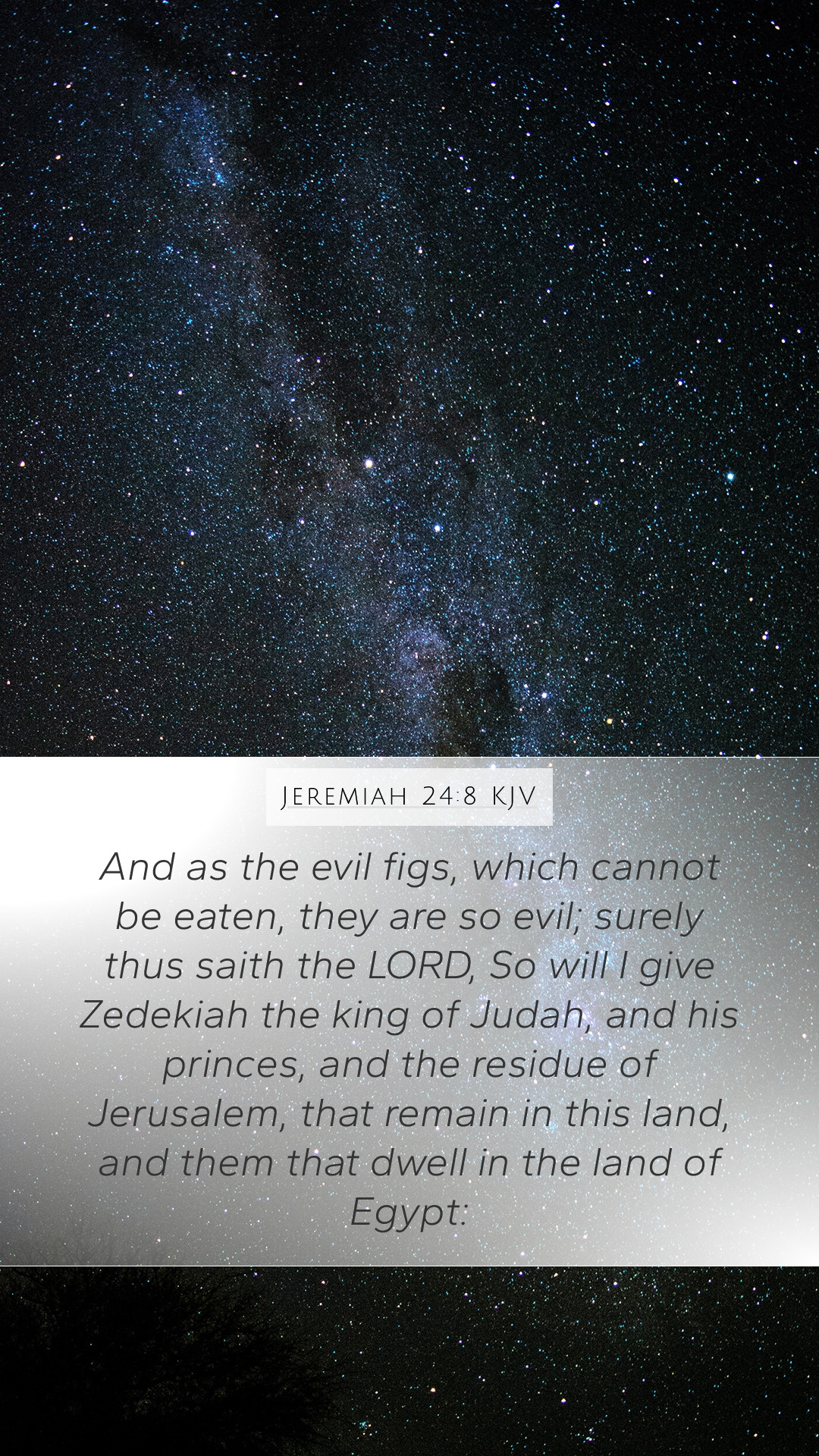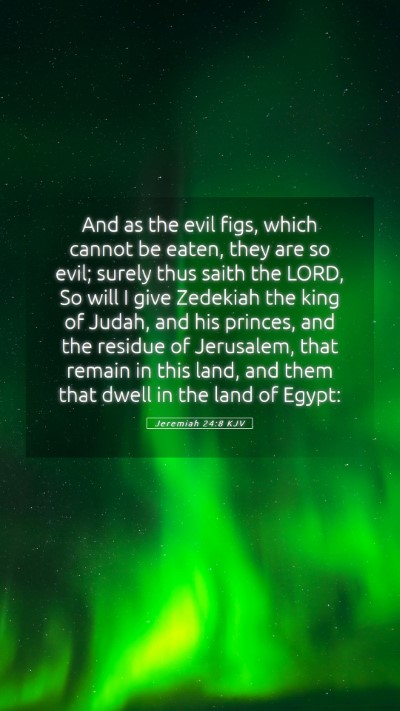Understanding Jeremiah 24:8
Jeremiah 24:8 states:
"And as the evil figs, which cannot be eaten, they are so evil; surely thus saith the Lord, So will I give Zedekiah the king of Judah, and his princes, and the residue of Jerusalem, that remain in this land, and them that dwell in the land of Egypt."
This verse forms part of a symbolic prophecy that God communicates through the prophet Jeremiah, utilizing the imagery of figs to express the fate of the people of Judah. Below is a detailed summary of interpretations based on various public domain commentaries.
Context of Jeremiah 24
This chapter of Jeremiah serves a dual purpose: to provide hope to those who remain faithful to God (represented by the good figs) and to warn the disobedient, including King Zedekiah and his confidants (symbolized by the evil figs). Understanding this context is crucial to interpreting the verse.
Meaning of Jeremiah 24:8
The verse speaks of God's judgment, highlighting the contrasting destinies of the faithful and the unfaithful:
- Evil Figs: The "evil figs" in this passage symbolize the sinful and disobedient leaders of Judah, who will face divine judgment.
- God's Sovereignty: This verse reinforces the idea that God's sovereignty extends over the events regarding nations and leaders, asserting that their fate rests in His hands.
- Consequences of Sin: The passage underscores that unfaithfulness to God leads to dire consequences, emphasizing the moral responsibility of leaders to follow God's commandments.
- Judah's Exile: Following the fall of Jerusalem, many were exiled, and how God perceives those leaders during this time provides insight into the broader theme of hope for restoration.
Insights from Public Domain Commentaries
Matthew Henry
Matthew Henry notes that this verse contrasts the state of the good and evil figs, emphasizing that the evil figs represent those who will be utterly destroyed. He highlights divine promise and punishment as themes running through this prophecy.
Albert Barnes
Albert Barnes points out the contextual significance of Zedekiah's reign and the fall of Jerusalem. He emphasizes the attributes of God’s justice and warns of the gravity of ignoring His mandates.
Adam Clarke
Adam Clarke elaborates on the symbolic nature of figs within Jewish culture, interpreting the separation of the good and evil figs as a representation of God's judgment day where destinies are determined based on individual faithfulness.
Biblical Exegesis and Application
When analyzing Jeremiah 24:8, it is essential to consider:
- Historical Context: The verse comes at a critical time in Israel's history when the people faced consequences for their unfaithfulness.
- Personal Reflection: Believers today can reflect on their own lives, determining whether they align more with the "good figs" or the "evil figs."
Related Cross References
- Jeremiah 29:17: Discusses the judgment against those in Jerusalem.
- Ezekiel 18:30: Themes of repentance and the possibility of redemption.
- Matthew 3:10: Illustrates the necessity of bearing good fruit as a sign of true repentance.
Conclusion
Jeremiah 24:8 serves as a profound reminder of the consequences of disobedience to God and His commands. It challenges readers to consider their own faithfulness and the state of their spiritual lives.


